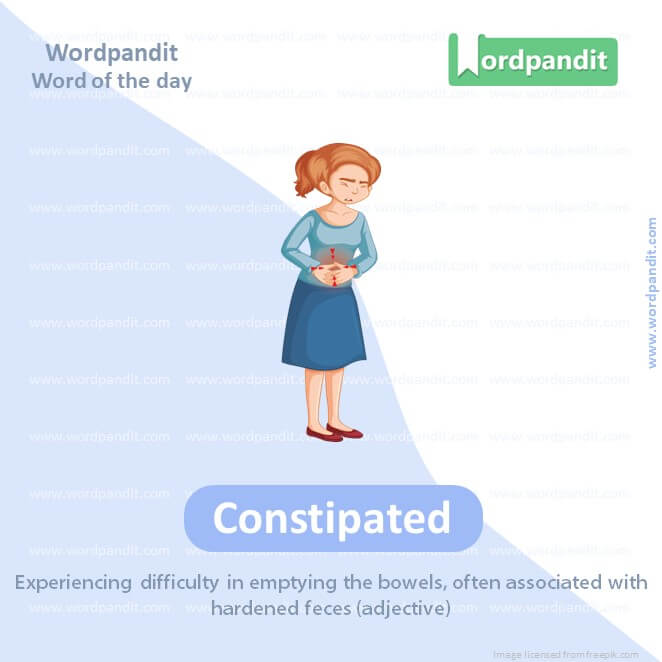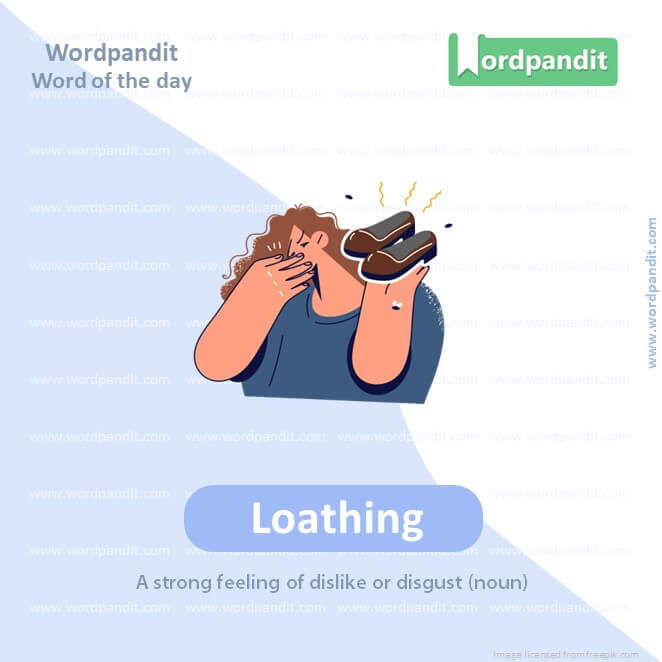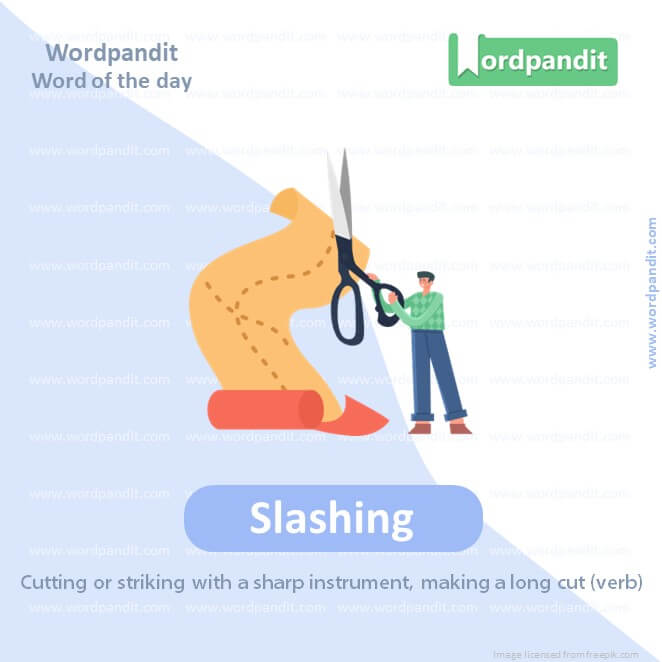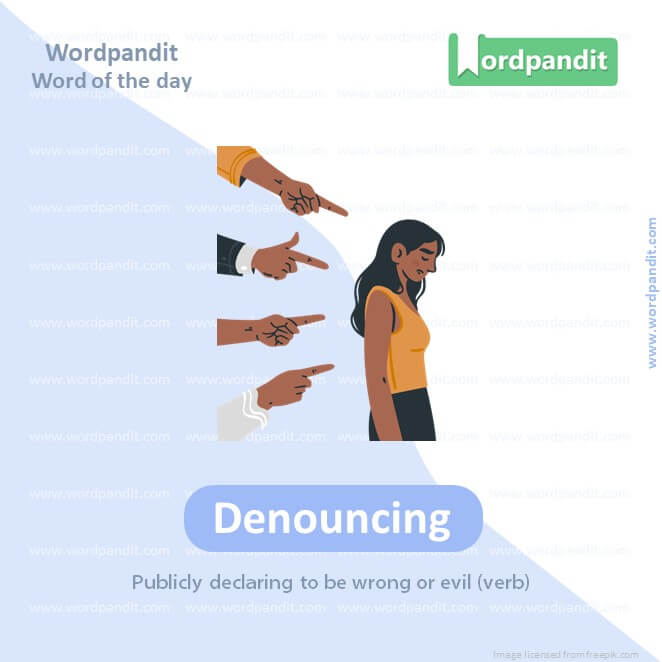Daily Vocabulary Words: List of Daily Used Words in Leading International Newspapers
Hi there. Welcome to this special section @ Wordpandit.
Our endeavour here is very simple: to highlight important daily vocabulary words, which you would come across in leading newspapers in the country. We have included the following newspapers in our selection:
• The New York Times
• The Washington Post
• Scientific American
• BBC
• The Guardian
• Psychology Today
• Wall Street Journal
• The Economist
We are putting in extensive work for developing your vocabulary. All you have got to do is be regular with this section and check out this post on a daily basis. This is your repository of words that are commonly used and essentially, we are posting a list of daily used words. Hence, this has significant practical application as it teaches you words that are used commonly in leading publications mentioned above.
Visit the website daily to learn words from leading international newspapers.

WORD-1: Constipated
CONTEXT: the speaker of the House, managed to approximate the expressions of a constipated turtle.
SOURCE: New York Times
EXPLANATORY PARAGRAPH: Imagine if your belly felt very full because you haven’t been able to poop for a few days. That uncomfortable feeling is called being “constipated.” It means your body is having a hard time getting rid of the waste, and it makes you feel not so good.
MEANING: Experiencing difficulty in emptying the bowels, often associated with hardened feces (adjective).
PRONUNCIATION: KON-stuh-pay-tid
SYNONYMS: blocked, clogged, obstructed, impacted, backed-up
USAGE EXAMPLES:
1. Drinking more water can help if you’re feeling constipated.
2. The doctor may recommend medicine for a constipated patient.
3. Eating fruits and vegetables helps prevent getting constipated.
4. She felt constipated after eating too much cheese.

WORD-2: Loathing
CONTEXT: our shared loathing of Donald Trump draws us together at moments like these.
SOURCE: New York Times
EXPLANATORY PARAGRAPH: Loathing is a very strong word for not liking something or someone a lot. Imagine if there’s a food you really, really don’t want to eat because the thought of it makes you feel yucky. That feeling is like loathing.
MEANING: A strong feeling of dislike or disgust (noun).
PRONUNCIATION: LOH-th-ing
SYNONYMS: hatred, detestation, abhorrence, revulsion, disgust
USAGE EXAMPLES:
1. He felt a deep loathing for the unfair rules.
2. Her loathing of broccoli made her refuse to eat it.
3. The movie stirred up feelings of loathing in the audience.
4. There was a mutual loathing between the two rivals.

WORD-3: Slashing
CONTEXT: You can’t blame Hochul for wanting to respond in some very public way to incidents like that recent slashing of a subway conductor.
SOURCE: New York Times
EXPLANATORY PARAGRAPH: Slashing is like when you use something sharp, like a sword in a fairy tale, to cut through things very quickly. It’s a fast swipe or strike that can cut something apart.
MEANING: Cutting or striking with a sharp instrument, making a long cut (verb).
PRONUNCIATION: SLASH-ing
SYNONYMS: cutting, slicing, gashing, chopping, hacking
USAGE EXAMPLES:
1. The knight was slashing through vines in the jungle.
2. She practiced slashing movements in her martial arts class.
3. The chef was slashing the fish into thin slices.
4. The horror movie showed a scene of a monster slashing through doors.

WORD-4: Denouncing
CONTEXT: I learned that the terrible migrant incident she was denouncing had actually happened in Mexico during the George W. Bush administration.
SOURCE: New York Times
EXPLANATORY PARAGRAPH: Denouncing is like when you see someone doing something very wrong, and you tell others loudly that it is bad and should not be done. It’s speaking out against something to show you don’t agree with it at all.
MEANING: Publicly declaring to be wrong or evil (verb).
PRONUNCIATION: de-NOUN-sing
SYNONYMS: condemning, criticizing, attacking, vilifying, censuring
USAGE EXAMPLES:
1. The mayor was denouncing the new law as unjust.
2. Activists were denouncing the company for harming the environment.
3. The article was denouncing corruption in politics.
4. She was brave in denouncing the unfair treatment she witnessed.
WORD-5: Factually
CONTEXT: I read some of the negative reviews, and learned later of her factually botched rape story.
SOURCE: New York Times
EXPLANATORY PARAGRAPH: Factually is when something is true or real, like when you tell a story exactly how it happened without making anything up. It’s sharing information that can be proven or shown to be correct.
MEANING: In a manner that is based on fact (adverb).
PRONUNCIATION: FAK-choo-uh-lee
SYNONYMS: truthfully, accurately, correctly, verifiably, precisely
USAGE EXAMPLES:
1. The journalist reported the events factually.
2. It’s important to speak factually in a science class.
3. The book describes the historical event factually.
4. Her statement was checked to ensure it was factually correct.
WORD-6: Predominant
CONTEXT: Nuclear weapons were the predominant national security concern for our country for a half-century, and that was reflected within culture and art.
SOURCE: New York Times
EXPLANATORY PARAGRAPH: Predominant is like when something is the most common or the biggest thing among others. Imagine you have a bag of mixed candies, but most of them are chocolate. We could say chocolate is the predominant candy in the bag.
MEANING: Being the most common or the strongest in influence (adjective).
PRONUNCIATION: pre-DOM-ih-nant
SYNONYMS: prevailing, dominant, foremost, principal, leading
USAGE EXAMPLES:
1. Blue is the predominant color in the painting.
2. The predominant opinion in the group was in favor of the trip.
3. She has become the predominant expert in her field.
4. The predominant wind direction here is from the west.

WORD-7: Enlightening
CONTEXT: these three films do a really good job in an entertaining way of enlightening you about what’s at stake while also informing you about the current threat that we face today.
SOURCE: New York Times
EXPLANATORY PARAGRAPH: Enlightening is when you learn something really interesting or important that helps you understand things better. It’s like when a light bulb goes on in your head, and you say, “Oh, now I get it!”
MEANING: Providing greater knowledge or understanding (adjective).
PRONUNCIATION: en-LIGHT-en-ing
SYNONYMS: illuminating, informative, educational, revealing, instructive
USAGE EXAMPLES:
1. The museum visit was an enlightening experience.
2. Reading the book was enlightening and changed her perspective.
3. The lecture was enlightening, offering insights into the subject.
4. He found the discussion enlightening and thought-provoking.
WORD-8: Absurdity
CONTEXT: One of the things that “Dr. Strangelove” does really well is it highlights the absurdity of the arms race.
SOURCE: New York Times
EXPLANATORY PARAGRAPH: Absurdity is when something is so silly or strange that it makes you laugh or think it doesn’t make sense. Like if someone told you fish could walk on land, that would be an absurdity because it’s really not possible.
MEANING: The quality of being ridiculous or wildly unreasonable (noun).
PRONUNCIATION: ab-SUR-di-tee
SYNONYMS: ridiculousness, foolishness, nonsense, silliness, lunacy
USAGE EXAMPLES:
1. The absurdity of the situation made everyone laugh.
2. He pointed out the absurdity of the proposed plan.
3. The movie was full of absurdity and unexpected humor.
4. They debated the absurdity of believing in flat Earth theories.
WORD-9: Inadvertent
CONTEXT: It would not fail in an inadvertent detonation.
SOURCE: New York Times
EXPLANATORY PARAGRAPH: Inadvertent is when something happens by accident or without meaning to. It’s like when you spill your juice without wanting to; you didn’t do it on purpose, it was inadvertent.
MEANING: Not resulting from or achieved through deliberate planning (adjective).
PRONUNCIATION: in-ad-VER-tent
SYNONYMS: unintentional, accidental, unintended, unplanned, unpremeditated
USAGE EXAMPLES:
1. The spill was an inadvertent mistake.
2. He made an inadvertent comment that hurt his friend’s feelings.
3. The discovery was made through an inadvertent error in the experiment.
4. An inadvertent push caused the vase to fall.
WORD-10: Stirred
CONTEXT: When you’re emotionally stirred and you’re activated to do something.
SOURCE: New York Times
EXPLANATORY PARAGRAPH: Stirred is like when you mix your hot chocolate with a spoon to make sure the chocolate powder and milk blend well together. It means to move or mix something around.
MEANING: Moved or mixed something by making circular movements with a tool or a part of the body (verb).
PRONUNCIATION: STURD
SYNONYMS: mixed, blended, agitated, whisked, churned
USAGE EXAMPLES:
1. She stirred the soup to prevent it from sticking to the pot.
2. The wind stirred the leaves on the ground.
3. He stirred his coffee with a spoon before drinking.
4. The speech stirred emotions among the audience.
Vocabulary Sentence
The task of mastering language stretches beyond the realm of solitary words. It invites us to construct and comprehend a ‘vocabulary sentence’. This amalgamation of words into meaningful sentences adds layers to our linguistic prowess. However, effectively learning from a ‘vocabulary sentence’ requires some strategic insight. So, how should we approach it?
Firstly, when encountering a ‘vocabulary sentence’, it’s pivotal to comprehend the word in context. Deciphering its place and role in the sentence gives a deeper insight into the word’s meaning, usage, and nuances. This approach aids in firm retention and active application of words.
Another technique to master a ‘vocabulary sentence’ is to break it into manageable chunks. Look at each word, understand its function, and then put it all together to comprehend the sentence as a whole. This step-by-step dissection and understanding better cements the ‘vocabulary sentence’ into your learning.
Mimicking the prosody and rhythm of language while practicing ‘vocabulary sentence’ can also foster better learning. In this regard, listening to podcasts or watching videos in the target language can be exceptionally beneficial. They showcase real-life demonstrations of how words are strung together into sentences with correct stress patterns and intonations.
Lastly, crafting your own ‘vocabulary sentence’ with learnt words strengthens understanding and boosts recall. Be it during conversation or writing, actively using these sentences plays a key role in contextual learning.
In essence, unfolding a ‘vocabulary sentence’ is a treasure trove of learning opportunities. With proper understanding, breaking sentences into chunks, mimicking prosody, and actively crafting sentences, the journey of learning from a ‘vocabulary sentence’ becomes engaging and fruitful. Every sentence learnt and applied is a valuable catch in the linguistic sea!











